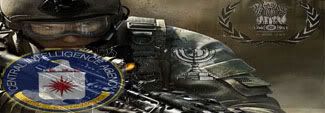Adolf Hitler
“It has to be the Indians, I tell you,” he said. “Look at the details of this attack: the target inside the base was a technology specifically designed to counter the Indian forces.”
This is the view inside most military circles — the argument I heard most often when I visited Islamabad this month, arriving on the same night as the PNS Mehran Base attack. My conversations with military officials centered around terrorism, and these discussions brought to light the concept of Fourth Generation Warfare (4GW).
A research paper at the National Defense University focusing on 4GW contends that Pakistan is facing a war on a front most of us can’t even analyse correctly. According to the paper, war theorists all over the world say that warfare has entered into a new phase where “an evolved form of insurgency uses all available networks — political, economic, social and military — to convince the enemy’s decision makers that their strategic goals are either unachievable or too costly for the perceived benefit.” It characterises 4GW as a scenario where the distinction between war and peace is blurred so that war becomes non-linear, possibly to the point of having no definable battlefields or fronts.
Though military circles say they understand this and are preparing for it, they feel that winning 4GW requires an integrated approach and that unity is missing in Pakistan. With the increase in urban centre attacks on the military, there is a growing need for the civilian leadership to understand the changing dynamics of warfare and come forward to develop a national security policy. The military circles in Islamabad believe that there is a need to revisit the counter-terrorism strategy but they complain that political circles lack the initiative and do not want to take responsibility in case something goes wrong.
Uniformed personnel in our country are frustrated with what they see as the failure of the civilian leadership to formulate a strategic response. Moreover, they believe that political rifts between the elected leadership are so wide that it is delaying consensus on how to respond to the threat Pakistan faces today. An instance that a military friend quoted was the absence of the Defence Minister from the Defence Cabinet Committee meeting on 25th May 2011. Another example of the parliament’s lack of interest can be seen in the government’s inability to make the National Counter-terrorism Authority (NACTA) — which has been waiting approval since 2009 — functional.
Nevertheless, in the minds of citizens, terrorist attacks raise concerns primarily about military strengths, not the political leadership. Many in the military agree that the military needs to revisit its security policies but strongly feel that it is not possible to achieve success in counter-terrorism without support from the civilian setup. An official complained that the military is blamed for failing to stop attacks, but the security apparatus of the civilian government is not also blamed . If the ISI and MI failed, they ask, what about the police, special branch and intelligence bureau?
The military feels that non state violent actors (NSVAs) do exist on Pakistani soil and are being manipulated by enemy forces to achieve strategic goals. These enemy forces are neither individuals nor groups but ‘countries’ that are capitalising on internal conflict keeping alive the NSVAs. According to them strengthening security on military bases alone is not the solution. NSVAs will continue to be exploited until the political leadership takes the initiative to wipe out the enabling environment and external threat will continue to translate into internal threats that we see today.
According to the research paper mentioned earlier, the proponents of counter-terrorism strategies in the face of fourth generation warfare feel that providing economic prosperity is the foremost way of eradicating this brand of war. To effectively fight the current war on terror, decision-makers in Pakistan need non-military means: we need to understand that terrorism is simply a tactic, not an enemy in itself, and so requires a counter-tactic, instead of a strategy to physically kill the terrorists.
So how do we defeat these terrorists? The research paper highlights that ideology is the strongest element of 4G warriors’ power instead of military power, so their most powerful weapon of indoctrination can only be defeated through education and awareness in the region. Military officials feel that success will only come if the nation has a political leadership that strengthens the socio-economic conditions of people in the affected areas, sincerely works on raising literacy levels and activates its own security apparatus. On the other hand, there is a need for the military to acknowledge its own lapses and errors, and also recognise that the enemy may well be within its own ranks. Simply playing the blame game will only result in failure on all fronts.
Published in The Express Tribune, Sunday Magazine, June 5th, 2011.











0 comments:
Post a Comment